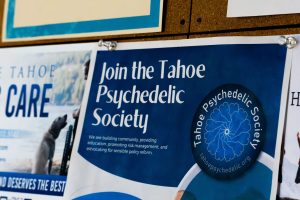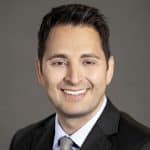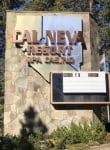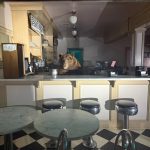Healing in a new light: Psychedelics, trauma, and cultural change
“I’m a conservative,” said Jon Dalton, a former Navy SEAL and current president of the Nevada Coalition for Psychedelic Medicines. “So my first reaction was, ‘That sounds like a bunch of hippie drugs with a bunch of hippies trying to escape reality.'”
Dalton served 23 years in the Navy, completing 11 combat deployments in Iraq and Afghanistan. He never expected his post-military life would center around advocating for psychedelic policy reform.
After retirement, however, everything changed. He struggled with severe depression and anxiety. He was prescribed SSRIs, a drug used as anti-depressants, but remained treatment-resistant.
“I had trouble even leaving my house,” he said. “I couldn’t see a future in front of me.”
What shook him most were the near-daily texts about fellow veterans — friends and colleagues — committing suicide. As he noticed similar patterns in himself, he feared he might be next.
As a last resort, he took the advice of another SEAL and traveled to Mexico for psychedelic-assisted therapy. There, under guided supervision, he took Ibogaine, followed by 5-MeO-DMT — one of the most powerful known psychedelics.
The journey lasted 18 hours.
Dalton found himself enveloped in darkness, grief, and haunting memories. Yet through it all, his thoughts kept returning to three anchors: his son, his girlfriend, and his dog.
“Every time I thought of them, I smiled,” he said. “The darkness would lift — replaced by peace.”
During his military career, Dalton learned to compartmentalize pain. He saw friends die and was forced to carry on minutes later.
“You learn to survive by shutting down your emotional aperture,” he explained. “But it’s not a selective mechanism. You’re not just blocking grief — you’re blocking love, joy, and connection.”
What no other therapy had shown him but what the psychedelic experience made unmistakably clear, was that he was no longer on the battlefield.
“Love with loss is still better than no love at all,” he said softly. “In fact, it’s beautiful.”
After his psychedelic experience, Dalton became deeply involved in psychedelic policy reform, eventually founding the Nevada Coalition for Psychedelic Medicines in 2023. The nonprofit’s ultimate goal is to legalize psychedelic-assisted therapy.
“Other people out there need help,” Dalton said. “This was a profound experience — one that others deserve the chance to have, too.”
Psychedelics — also called hallucinogens — are a class of psychoactive substances that alter perception, mood, and cognition. While psychedelic substances remain illegal in the U.S., interest in their mental health applications is growing rapidly.
To explain what’s happening in the brain, Dr. Burton Tabaac, neurologist and clinical psychedelics researcher in Reno, offered a metaphor.
“Imagine a snow-covered hill,” he said. “Your thoughts are sleds. Over time, they carve deep, repetitive grooves — fixed thought patterns. Psychedelics act like a fresh layer of snow, allowing the sleds to form new paths.”
This layer of snow allows for neuroplasticity — the brain’s ability to form new connections.
Tabaac emphasized the Default Mode Network (DMN), a group of brain regions linked to self-referential thinking. Under psychedelics, the DMN becomes less active, quieting the “self” and making space for new insight and perspective.
“What’s really promising,” Tabaac said, “is that a single dose can lead to profound and long-lasting changes — something we don’t often see with standard treatments that just manage symptoms.”
However, one of the most important factors in any psychedelic journey is “set and setting” — a person’s mindset (set) and the physical and social environment (setting) during the experience.
“You can’t expect to take MDMA, go to a rave, and think it’s going to cure your PTSD,” Tabaac said.
Some mental health professionals like Barbara Chandler, a licensed therapist in Truckee and Reno and certified in psychedelic-assisted therapy, work with clients during the preparation and integration phases of their psychedelic journeys.
“Some people are already doing psychedelics,” Chandler explains. “Others have therapists who aren’t familiar with them, so they get referred to me.”
Chandler helps clients mentally, emotionally, and physically prepare for their experiences — and reflect on them afterward.
“Psychedelics can serve as tools for deep inner exploration,” she said. “When approached with care and intention, psychedelics have the potential to reconnect people with their true selves.”
The Psychedelic Movement Reaches Truckee-Tahoe
On the first night of his ayahuasca journey, a psychedelic brew traditionally used in Amazonian Indigenous ceremonies, Brian Broom closed his eyes, uncertain of what might unfold.
Then it hit him, a sudden surge of energy, like a laser beam of pure, maternal love piercing through his chest. It felt as if the universe itself had chosen that moment to reveal the essence of love.
Within the brilliance of that energy, his mother appeared, not as a person, but as a prism, refracting the beams of love. Some passed through her and intensified. Others scattered and softened.
For a moment, Broom was enveloped in total warmth. It was cosmic, concentrated, and undeniable.
And then, he turned to stone.
His body felt heavy and unmoving, as if the love had activated a defense buried deep within.
“I’ve done that,” he later reflected, emotion rising in his chest. “I’ve turned to stone whenever someone tried to love me.”
The next night, Broom returned to the psychedelics with a new intention.
“I wanted to meet the kid who built those walls,” he said. “To sit with him. Listen. Befriend him.”
He imagined a small patio beneath the stars, a fire flickering, snacks laid out with care. A shy, wide-eyed boy appeared, hesitant and unsure. Broom opened his arms, but the boy stepped back.
“How do I know you won’t abandon me again?” the boy asked.
Broom didn’t know what to say. So, he listened.
The boy spoke of years of silence, of begging to be seen.
“I tried to tell you,” the boy said. “You’re gay.”
Broom hadn’t come out to himself until he was 19. For years, he had rejected that truth, unable to love himself, let alone accept love from others. That disconnection shaped how he related to friends, partners, and especially his mother.
Broom recounted the experience with deep emotion. The psychedelic journey, he said, had transformed his relationships; he was finally able to accept the love that others had been offering all along. No therapy session, he noted, had ever come close to giving him that kind of breakthrough.
The journey also inspired him to become more involved in the psychedelic community. He joined the Sierra Psychedelic Society, a nonprofit promoting education and harm reduction around psychedelic medicines.
In 2023, Broom founded the Tahoe Psychedelic Society, bringing the growing national movement to Truckee – Tahoe’s community. After his psychedelic experience, he became passionate about demystifying the science, teaching its safe exploration, and fostering open conversations about mental health and healing through psychedelics.
“In the right setting, psychedelics can be very impactful,” Broom said. “I want them to be used safely, and I want to share information about the science and practice behind them.”
To learn more about psychedelics or access related resources, you can visit the Tahoe Psychedelic Society at https://www.tahoepsychedelic.org/ or the Nevada Coalition for Psychedelic Medicines at https://www.nevadacpm.org/

Support Local Journalism

Support Local Journalism
Readers around the Lake Tahoe Basin and beyond make the Tahoe Tribune's work possible. Your financial contribution supports our efforts to deliver quality, locally relevant journalism.
Now more than ever, your support is critical to help us keep our community informed about the evolving coronavirus pandemic and the impact it is having locally. Every contribution, however large or small, will make a difference.
Your donation will help us continue to cover COVID-19 and our other vital local news.










